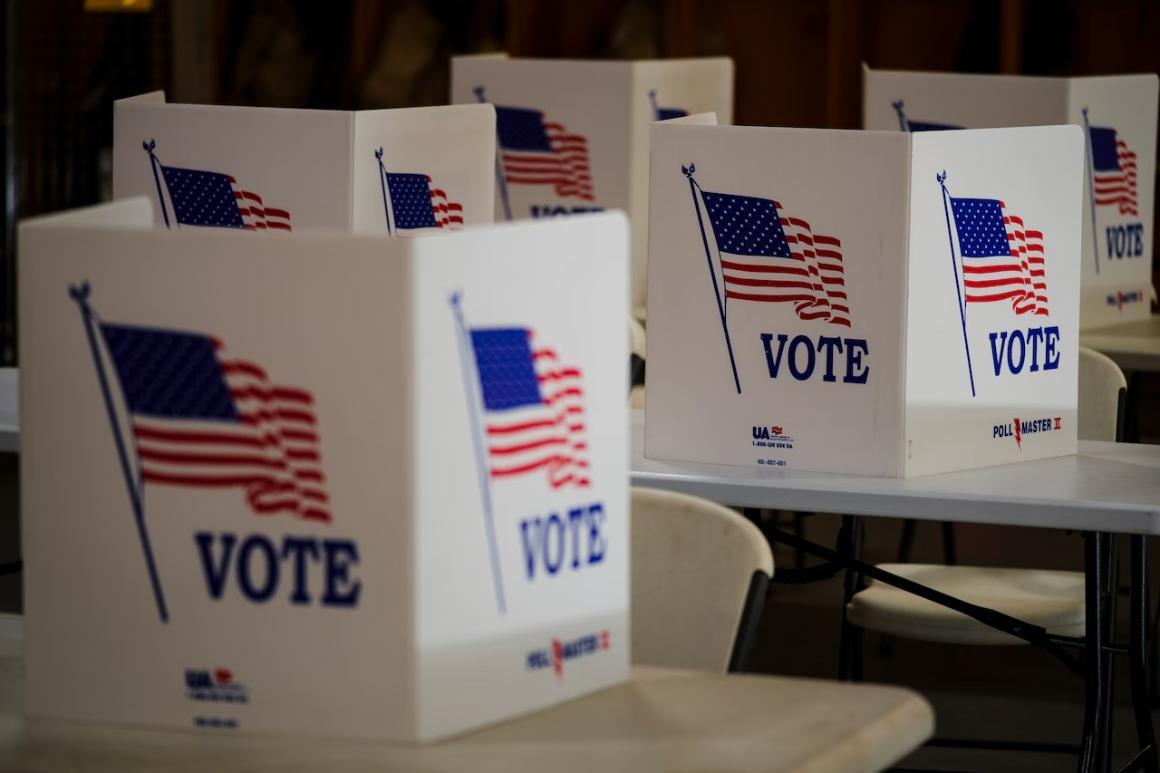Early in my career, with a Ph.D. from MIT and a limitless future ahead of me in academia, I was one of those people who could be heard complaining that my reputation was being besmirched by affirmative action policies. After all, I got tenure at Northwestern University three years out of graduate school with a flurry of technical articles published in the best economic journals. I didn't want anybody thinking I was an affirmative action professor. I could do the differential equations and the functional analysis with the best of them.
I was also one of the people to stress that it was the better-off among the designated minority groups who would reap the benefits from affirmative action. Although the moral impetus for doing something about racial inequality derives substantially from the suffering of the worst-off people in the minority group—the ghetto poor—affirmative action was dispensing benefits that could only be accessed by those who had already solved the problem of moving from the margin into the mainstream of society. Those were the people who already owned businesses that might benefit from a contract set-aside, the people who could succeed were they to achieve admission to a top-flight state university. So, based on my analysis of the costs and benefits of this particular remedy for racial injustice, I found myself in the camp of affirmative action's opponents.
But in the wake of what has become a well-organized and concerted campaign to wipe out "racial preferences" wherever they "rear their ugly heads," I began to see that there was something missing in my understanding. Consider the campaign's rhetoric. One of the advocates likes to point to a typical application form and proclaim that Americans should not have to check off those "disgusting little boxes" to identify their race. This is a language one can fall in love with. It has a certain self-justifying tone about it: "America is a country where individuals—not groups—have rights, a country where we succeed or fail on the basis of our merit."
As I've watched the righteous campaign to rid ourselves of disgusting little boxes spread across the nation, I've noticed a certain narrative account emerging from it. It goes like this: We had racism; we had Jim Crow segregation. But we also had the civil rights movement. Martin Luther King stood before the Lincoln Memorial in 1963 and cried out that he had a dream that one day his children would live in a country where they would be judged not by the color of their skin but by the content of their character. Now we are approaching being such a country, but for those who insist upon irrationally continuing to define themselves in terms of race. What does a person's race have to do with any assessment of justice?
As I listen to that line, I have to object. The campaign against affirmative action as it has developed is dangerous, in my judgment, because within it lies the implication that any question of social or public justice that is formulated in racial terms is prima facie illegitimate.
One can oppose affirmative action and still believe that the racial composition of a student body is a relevant factor among many for a university to consider in the construction of its educational mission. One can critique particular policy instruments without rejecting the notion that racial justice is an appropriate goal.
The key issue is not whether the instrument is colorblind. One could use colorblind instruments to pursue racial goals and color-conscious instruments to pursue goals that are not necessarily racially defined. For example, let's say a governor needs to appoint judges to the courts. He might say, "I need to have a diverse group of appointees both for my own political protection and in the long-term interest of maintaining the legitimacy of the administration of justice in this jurisdiction. If I appoint all white men, I'm going to do damage not only to my own reputation but also to the institution of the court itself because I'm going to create a situation in which people do not feel that the institution fairly represents them. I have a responsibility as the governor to ensure that does not happen."
Maintaining the legitimacy of the institution of the court is not a racial goal. That's something everybody has a stake in. And yet in order to do it, the governor might have to peek into those disgusting little boxes to see whether his list of possible appointees contains a sufficient number of women and minorities.
On the other hand, a federal anti-drug policy concentrating on arresting street-level traffickers and putting them away for a long time is a colorblind policy, but it has racial consequences. Such policies have led to the incarceration of young people of color in vastly disproportionate numbers, young people who to some degree are engaged in the illicit traffic precisely because they are at the margin of society and their alternative opportunities are scant.
As a result of this and similar policies, out of the 1.8 million people under lock and key on any given day in this country, 900,000 are African Americans. If we focus on the color-blindness of the instrument, we fail to pay attention to the larger question: Aren't we prosecuting a public policy in the criminal justice area that has to be examined because of the cost it is imposing on a particular community?
I don't want to put too much stress on the criminal justice example because I understand that it is arguable. There are people who will disagree with my sense that our anti-drug policy is unjust. But I think one has to accept the logical claim that this colorblind instrument raises questions of justice that have as a part of their formulation the racial dimension of the policy's effects.
I want to insist on this distinction because you can slide very quickly from a forceful critique of policy instruments into a stand that denies the legitimacy of any discussion of public issues formulated in racial terms.
There are plenty of examples: Suppose many universities make a commitment to hiring an African American economist of the highest merit and quality, and suppose there are relatively few African American economists of the highest merit and quality. The consequence is going to be that the price of quality African American economists is going to get bid up. They will get better offers; they will get summer research stipends; they will get the corner office.
You can pass a law that everybody has to be paid the same salary, but that doesn't keep me from getting seven offers and my white colleague from getting one. He and I may be the same quality, but if the universities want to have a meritorious African American faculty member, I'm going to enjoy a better market.
I don't necessarily deserve this result because my ancestors were enslaved; that's not the point. My circumstances are an inescapable logical consequence of the structure of the situation.
Unfortunately, many people who are unhappy with that outcome have begun to object to what's generating the outcome: the desire of universities to have qualified black faculty. What begins as an argument against a practice—hiring at the level of an individual college—becomes an argument against a goal—wanting to have some minority presence on the school's top-flight social science faculty.
What is wrong with the goal? To answer that question, opponents are forced to argue that the color of university economics professors doesn't matter. They're forced to deny the common sense observation that it is desirable for universities with African American students to have some African Americans represented on their faculties.
In other words, they're compelled to make ahistorical arguments that deny our social reality in order to protect a claim about treatment. They have made the administrative practice the site of the moral discussion, but the moral question doesn't just reside there.
What happens if young people of color see the world through a racial lens? What happens if the descendents of slaves have not forgotten that they're black? When we send a young black man to prison boot camp, and we say, "Straighten up your life," what happens if he finds that a more compelling narrative when it's delivered by somebody he knows has walked the same streets he has?
Consider the cold, hard reality of growing up in one of these communities where every third person goes off to the penitentiary, where gangs and violence and drugs are everywhere. You can walk proud and tall wearing your colors in your' hood, but you put on a suit, go downtown, and try to get a job, and nobody will give you the time of day. That's where these young men are coming from.
And then we have intellectuals sitting back and saying, "What does race matter?"—saying in effect, "Those kids should just get over it. They should stop seeing the world in racial terms."Well, that is a wishful irrelevancy. It hasn't got anything to do with the reality of those kids. It's an abstraction put against the concrete history that generated the racial division in our society in the first place.
This is not special pleading for a minority student to get a seat at Berkeley that a white student has earned because the white student's SAT scores are 1500 and the minority student's are only 1200. This is an effort to keep our eye on the ball: The question of social justice in our society cannot be meaningfully formulated without entering into the ambiguous and morally complicated morass of race.
There are some who would deny that racial justice is a meaningful category. They would say, "There's justice, and there's non-justice." I reject that argument. This is not a principled rejection; it's historically contingent. It's a rejection based upon the specific facts of our society and the way in which people see themselves.
In America, people identify and define themselves in racial terms—and it's not only the minorities who do so. For example, white men intermarry with Asian women at a rate 10 times higher than they intermarry with African American women. I'm not saying the men or the women are racist, but the figures do show something about the preference for intimate association across racial lines at the place where it really counts—where people make lifetime commitments to bind themselves together and build families together.
Take the case of adoption. To prospective parents, the price of a healthy white baby is $40,000 as revealed by what people are willing to pay the lawyers and social workers who arrange the adoptions. The price of a healthy black baby seems to be $6,000 to $7,000 by the same economic criteria.
Many black babies languish unadopted while white families travel across great oceans and thousands of miles to adopt infants from other countries. Again, I'm not saying the white families are racist. There are blacks who don't want black babies adopted by whites; I know that. What I'm saying is that the phenomenon of disparity in intimate association is a reflection of the depth of racial separation in our society.
You can see it on a less intimate level, as well, in Still the Promised City (Harvard University Press, 1996), a study by UCLA sociologist Roger Waldinger. Waldinger noticed that immigrants from all over the world were occupying the bottom occupational niches in relatively low-skill trades and low-paid factory work in New York City, and he asked, "Why can't poor blacks get those jobs?"
Were the employers racist? No, it was much more complicated than that. It had to do with the fact that people get jobs in the low-wage sector of manufacturing in New York by belonging to a network of referral: The employer relies on incumbent employees to bring him new workers.
Those networks turn out to have an ethnic coloration. Often, they stretch back to the old country. The migrant who has already settled in finds a job for the cousin or the friend of the family who has just immigrated. This is not about skills; it's not about merit. Basically, anybody who shows up every day is meritorious in this kind of work. This phenomenon is about connection.
In contrast, New York inner city blacks, who walk with a certain gait and listen to a certain kind of music and talk in a certain way, tend to be stigmatized. They tend to be associated with the drugs and violence that are prevalent in their neighborhoods although the majority of them are just trying to find work like anybody else.
The fact that they are locked out of work is not a conspiracy. It's not some evil we can point to as we would to a Southern segregationist governor and say, "If you get out of the schoolhouse door, everything will be fine." It's a complex residue of a historically evolved system of racial segregation and stigma.
How can we talk about justice and equality in American society without any reference to this reality? That's not colorblindness; that's just blindness.
We must be prepared to define and map the social landscape, in part, in racial terms. History and contemporary social reality compel that. When we do, we will find that sometimes instruments of public action formulated in racial terms are useful and their benefits outweigh their costs as we pursue justice ideals that can be defended with the best universalist philosophy. Sometimes we will find that public purposes pursued by racially defined instruments—such as affirmative action—are not a good idea. That's a call we'll have to make.
But the one thing that, as serious people, we mustn't do is suppose that we're talking about the real question of racial justice when we limit ourselves to a disavowal of those disgusting little boxes. That is weak intellectually and unforgivable morally.
The director of the Institute on Race and Social Division at Boston University, Glenn Loury won the 1996 American Book Award for One by One, From the Inside Out: Essays and Reviews on Race and Responsibility in America (The Free Press, 1996). This article is excerpted from his presentation for the 199899 Markkula Seminar on Affirmative Action. The Intercollegiate Studies Institute was a co-sponsor of the talk.
This article was originally published in Issues in Ethics - V. 10, N. 2 Fall 1999.



